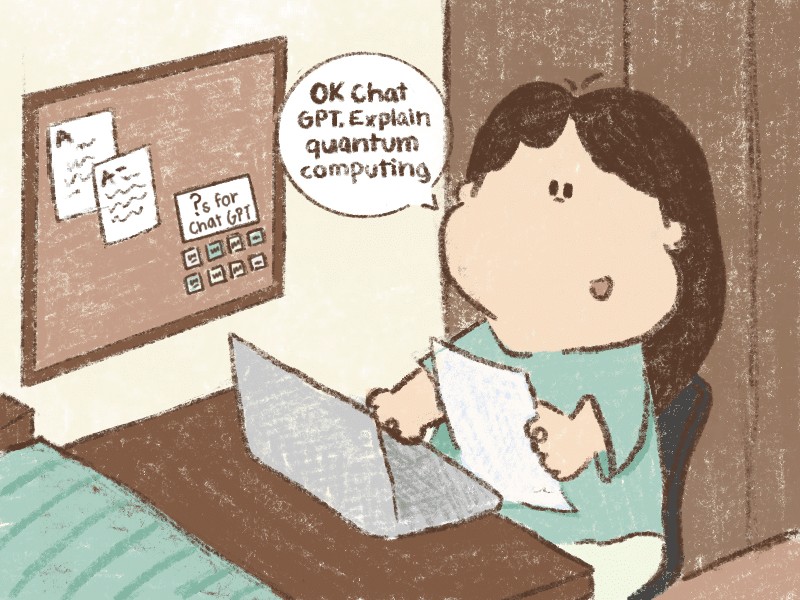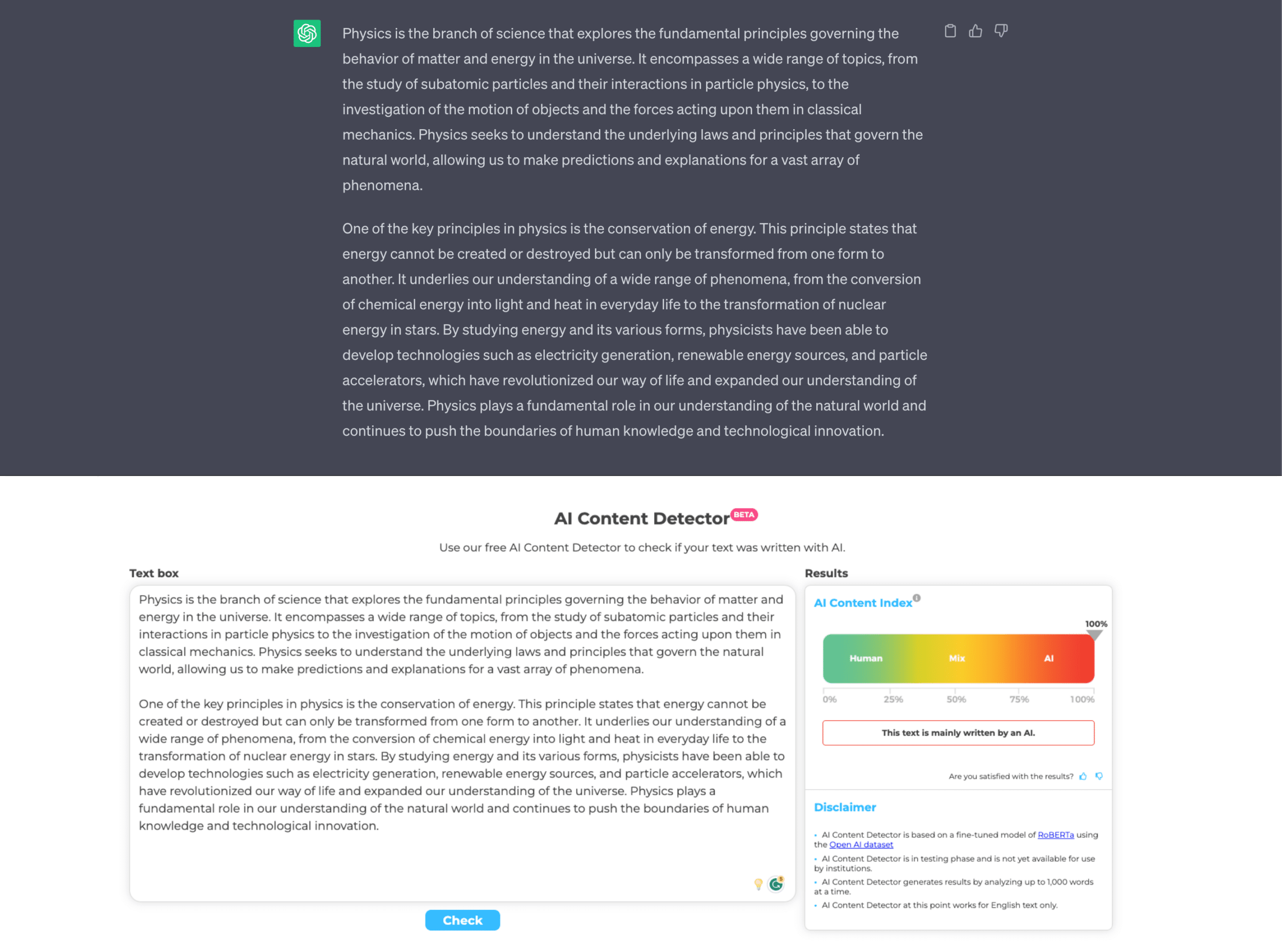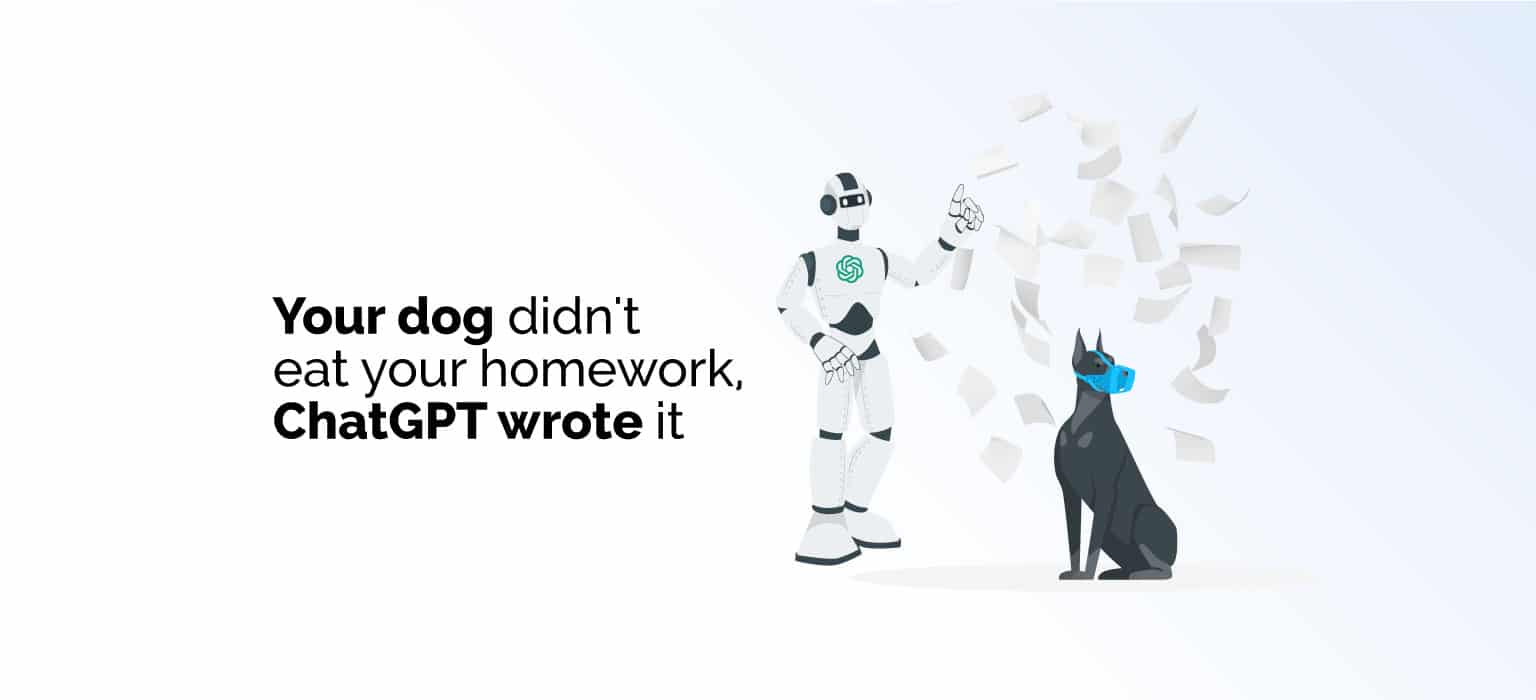Dogs are known to be our best friends – they keep us safe, work hard, and also provide an awesome excuse when we’re in a pickle. The tale of the dog eating your homework (that you totally did!) has been around for hundreds of years. According to the Oxford English Dictionary, the phrase was first found in a speech given by James Bewsher back in 1929.
In essence, “the dog ate my homework” carries the suggestion of being a common, poorly fabricated excuse made by students to explain why they failed to do their homework. I mean there have been cases where the dog really ate the homework, but it’s less likely it happened every time students said it did.
In the era of AI, rather than blaming your dog for eating your homework, wouldn’t it be smarter to understand how to leverage AI to help with your homework?
Challenging traditional excuses
Let’s move stones a bit and challenge the traditional excuses we’ve been using forever. Blaming our small puppy for feasting on our homework might have seemed clever back in 1929, but we’re here for a fresh approach.
Removing the need for a far-fetched excuse, ChatGPT can make your academic life better and easier if you know how to use it.
One of the best ways to use ChatGPT for homework is for
- Research
- Math
- Writing
The research will become an absolute breeze. If you’re stuck on a topic and need more information, you should turn to ChatGPT for guidance. Using quick and relevant insights it can help you gather the knowledge you need to complete the assignment. Note that you should always take the responses with a grain of salt as ChatGPt can be biased, incorrect, and inconsistent.
Are you having math problems? Who doesn’t, right? ChatGPT can be your personal tutor when it comes to math too. It can break your homework problems step by step, allowing you to fully grasp what is requested from you. It will also offer clear explanations on the way and help you conquer those tricky math challenges. However, you should not let ChatGPT do the work for you. The best way would be to understand the solution and try to do it on your own with different numbers.
Writing assignments become less scary when you know how to use ChatGPT. Being one of the most used scenarios, ChatGPT offers amazing ideas and viewpoints for different topics. ChatGPT offers you a vast amount of insights and doubt-clarifying whether you’re stuck on scientific principles, historical events, or literary analysis.
Should ChatGPT do my homework for me?
Without a doubt, ChatGPT’s impact on education has been immense. And it has taken education by storm. It has truly revolutionized education by making a profound difference in the way students behave.
And homework is not an exclusion at all.
With ChatGPT’s presence, finishing your homework has become a way easier task and a more engaging process. Students now -whether they fully grasp it or not – have access to instant assistance and valuable insights. This empowers them to handle assignments of all kinds with newfound confidence and enthusiasm. But should ChatGPT do the homework for you?
Absolutely not!
Technically, it can do your homework and do it pretty well. But by making this question you’re completely missing the point of why homework exists. And no, it doesn’t exist just to make you suffer. Homework helps professors determine how well you understood the lesson and teaches you problem-solving skills. It refreshes what you’ve already learned and gives you another opportunity to review what was taught.
It’s not to get an awesome grade from them at all. While, yes, most classes require homework and attach it to the points of the grade at the end of the semester, it’s more crucial to do them yourself. Humans are more advanced than AI is when it comes to problem-solving and homework might as well be the basis of it all.
Though, we might not be as advanced as we’d like to be:
My little cousin Arjun got caught using ChatGPT on his 7th grade English homework. pic.twitter.com/Enh0ZkeD4P
— Roshan Patel (@roshanpateI) June 1, 2023
Professors in the era of ChatGPT
While ChatGPT has been amazing for students when it comes to helping, it’s undoubtedly had an impact on professors as well.
Ever since the launch of ChatGPT back in 2022, there have been two sides of ‘the game’ – either embrace it or reject it. Let’s look at both of them for their pros and cons.
Read also: How to easily detect AI-generated text
There have been professors who are absolutely against something like AI interfering with their way of teaching. It’s always been taught the same and students have excelled this way. Why change it if it ain’t broken?
Pros of professors rejecting ChatGPT
- Preserving traditional approaches
- Critical thinking emphasis
- Maintaining academic integrity
Professors who have rejected ChatGPT have an unshaken belief that the traditional way of teaching has been the most successful and there’s reason it’s been around for so long. By the traditional way, I refer to focusing on face-to-face interactions, a classroom filled with students and discussions, and hands-on activities. They value direct human engagement over the ‘easy way’, to be frank.
By discouraging the use of AI in the learning process, professors aim to cultivate independent thought, problem-solving abilities, and creativity by pushing students to have in-hand interaction with the problem. The usage of AI in this process just makes students more dependent on it solving the problem for them, and limits their creativity.
And last but not least – by reducing the usage of AI you will maintain academic integrity at the highest level. Basically, if you let ChatGPT do the homework for you, it just recycles information that has already been around and someone else wrote it. It can’t come up with new things and can’t really write something unique just for you. By using it, you’re committing an academic integrity breach and possible plagiarism.
Cons of professors rejecting ChatGPT
- Staying behind on technology
- Missing out on efficiency
- Reduced adaptability
While keeping your class under your control has its benefits, it also has its negative sides. One of them is staying behind on the train of innovation. By dismissing AI completely, professors miss out on potential opportunities when it comes to being more effective in the learning experience. With the help of AI, teaching methods can be more interactive and more in-depth.
ChatGPT can offer quick answers, explanations, and insights that professors sometimes may lack due to a large classroom. By completely rejecting AI, professors are missing out on the information being spread out more efficiently and more adaptable.
A lot of students have already embraced ChatGPT and there’s no denying it. By banning it from the lectures, professors may struggle to meet the expectations and preferences of something that’s called a ‘modern learner’. This will most likely lead to a disconnected relationship between the student and the professor.
However, there is another more progressive approach – integrating ChatGPT into the learning process completely. Why not benefit from something amazing, right?

Pros of professors involving ChatGPT in the learning process
- Enhanced learning experience
- Time-saving
- Improved student engagement
By integrating AI into the learning process, professors can provide almost instant access to a vast amount of information to the students which will enhance the learning experience. This can supplement lectures – though not completely – offer different insights and serve as a helpful study aid.
Additionally, professors can save a lot of time by first taking the time to integrate AI into the process. AI can help them a lot by providing quick and to-the-point answers, reducing the need for extensive manual searches for individual explanations. This will allow the professor to focus on more important teaching aspects, making the class better.
The use of ChatGPT or any other AI model will most definitely spark students’ attention and engagement in the learning process. The interactive nature and ability to provide real-time solutions can motivate students to participate more actively and ask more questions.
Cons of professors involving ChatGPT in the learning process
- Overdependence on AI
- Inaccurate or biased information
- Ethical considerations
The downside of integrating AI in the process is the overdependence on it. Depending constantly and too much on AI may lead to a decline in critical thinking and independent problem-solving skills. Students may become too attached to it and will fail simple tasks after some time if AI is not present in the process.
AI systems are designed to be trained on data that is provided by humans, which can be flawed data or biased. AI is only as good as the data it is trained on and in most cases, the data is either inaccurate or biased and leaning towards one idea. This can lead to students being one-dimensional on specific topics and is a real threat to AI integration in education.
Professors have to take into consideration the concerns when it comes to privacy, data security, and potential biases embedded in AI algorithms. They need to understand and make the limitations of AI obvious to how dangerous they are to academic integrity.
How to evaluate if the homework is AI-generated?
Now we know what’s at stake, but how will the professor know if a text is AI-generated?
The first thing the professor needs to do is do manual checking. Examining the quality and depth of the content can give you a sparkle of whether the text is AI-generated or not. If the quality is a bit ‘underseasoned’ and the depth isn’t what you taught in the lecture, chances are that it’s not genuine. Additionally, the professor can look for inconsistencies as AI often jumps from point to point without connecting the dots. And also, academic conventions are something that AI is flawed on. Proper citation and referencing are important and can help determine the genuineness of the homework.
Or, professors can take the easy way and let the AI detector handle the work for them. It’s fairly simple – the professor pastes in the homework content and the algorithm will look for all of the things I mentioned above and give a percentage on the authenticity of the homework.
Here’s a great article on whether ChatGPT can be detected or not.
This is what the tool looks like:

Note: This article is purely my opinion and does not state the viewpoint of Crossplag.

Korab has dedicated the past decade to the marketing industry, focusing specifically on the intricate field of Search Engine Optimization (SEO). Despite his background in development, Korab’s unwavering passion for marketing drives his commitment to success in the field.
He’s been an Inter fan since he was a kid, which makes him highly patient for results.
Korab does not hike.

